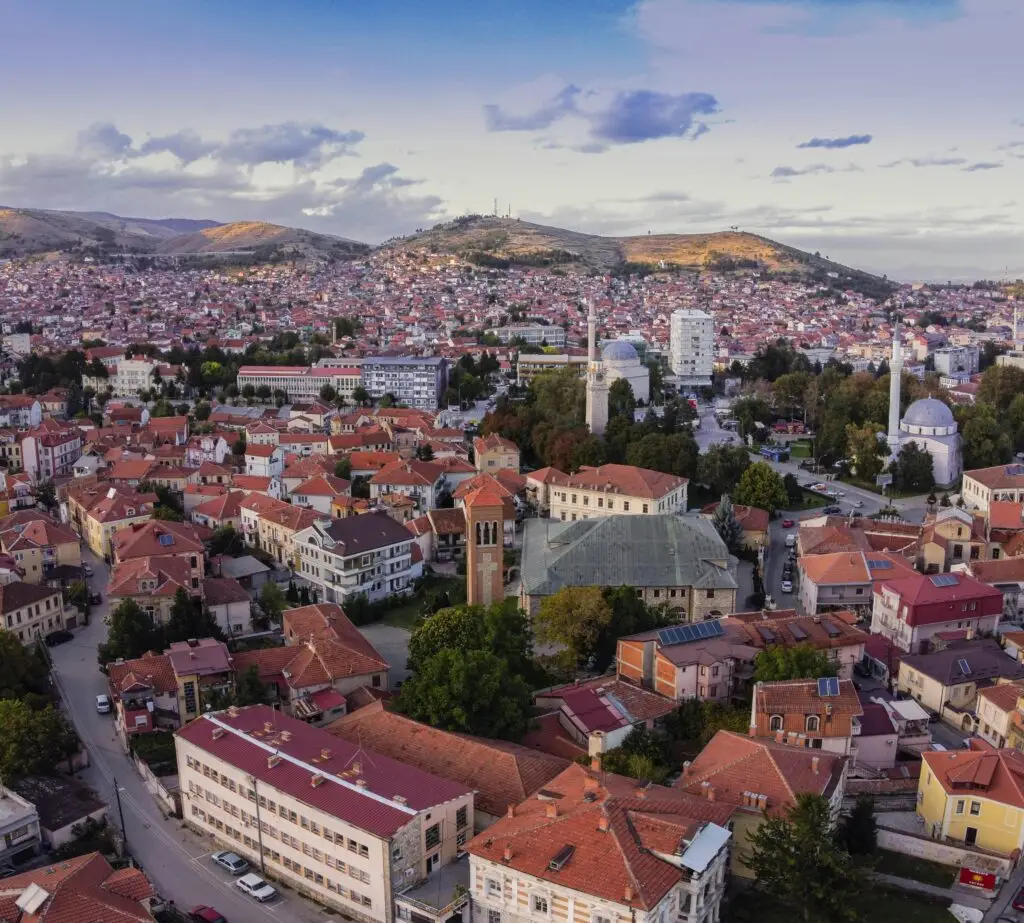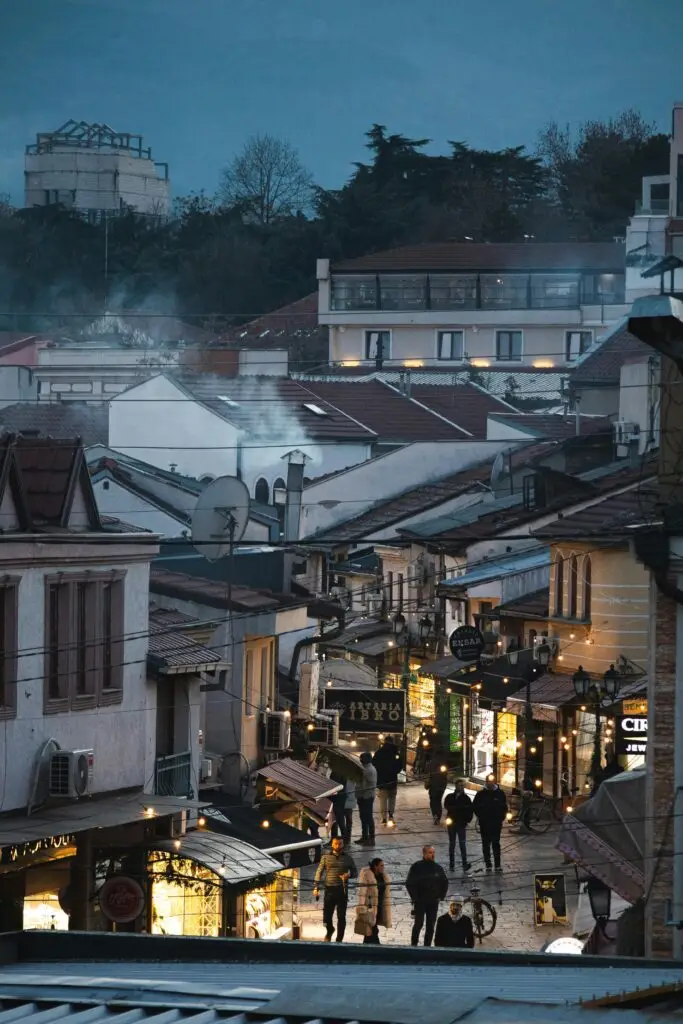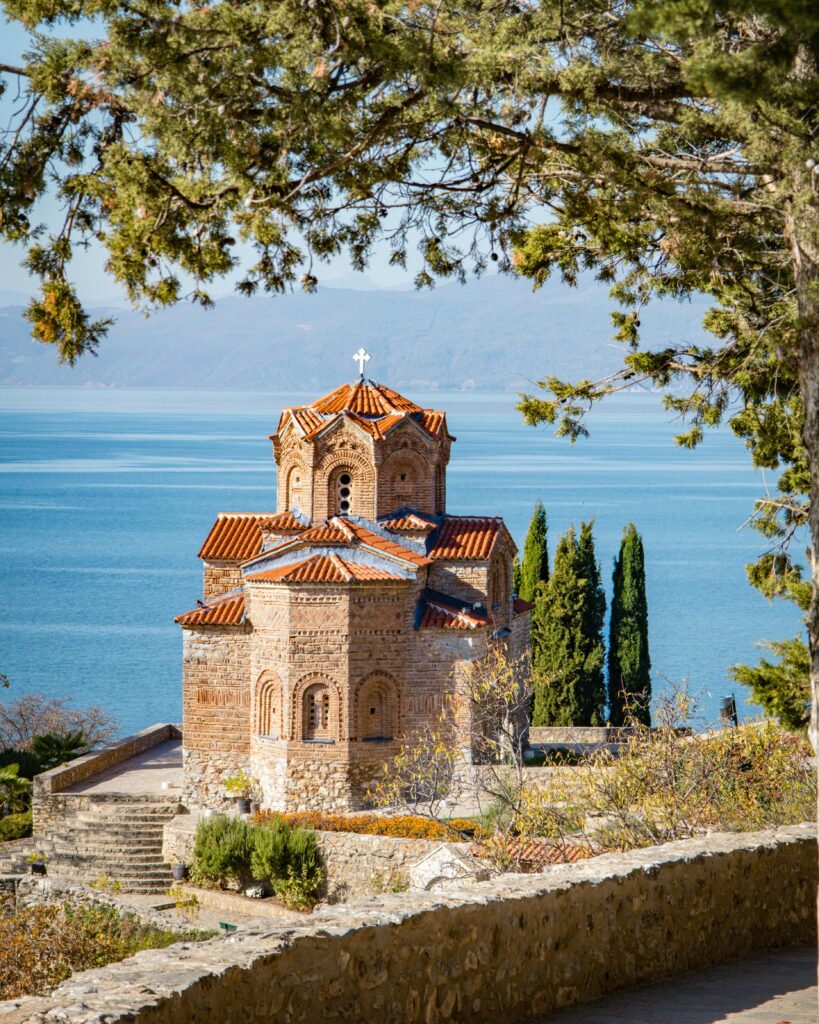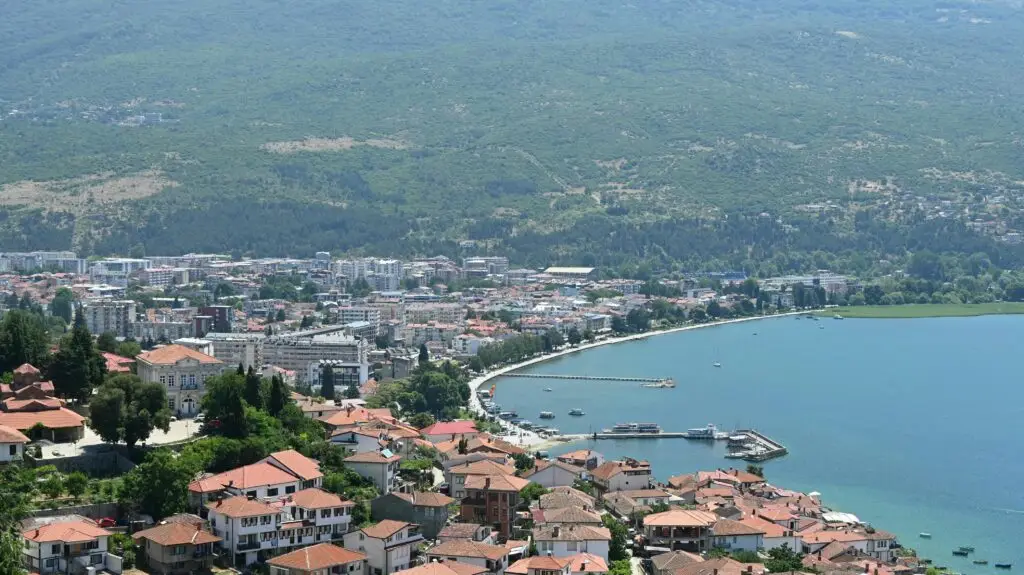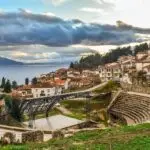Now Reading: Beyond Shopska: The New Wave of North Macedonian Chefs Redefining Balkan Cuisine
-
01
Beyond Shopska: The New Wave of North Macedonian Chefs Redefining Balkan Cuisine
Beyond Shopska: The New Wave of North Macedonian Chefs Redefining Balkan Cuisine
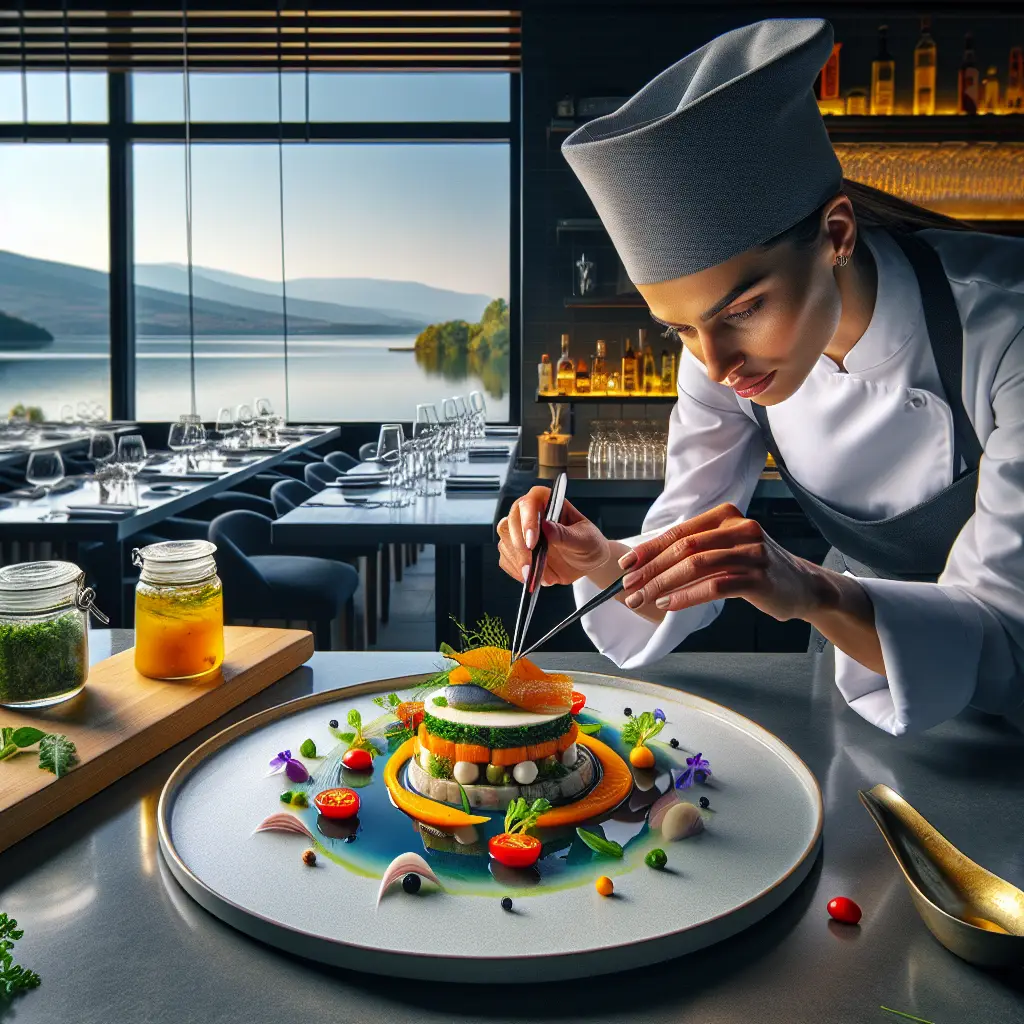
A generation of innovative chefs is transforming North Macedonia's culinary landscape, honoring traditional ingredients whilst creating contemporary dishes that are putting the country on the gastronomic map.
In a modest kitchen in Skopje’s Bohemian quarter, Chef Andrej Milevski carefully arranges wild herbs around a perfectly cooked piece of Ohrid trout. The dish looks like it belongs in a Michelin-starred restaurant in Paris or London, yet every element – from the lake fish to the pungent mountain herbs and the crunchy pickled vegetables – is profoundly Macedonian.
“For too long, our cuisine was reduced to shopska salad and tavče gravče,” says Milevski, whose restaurant Terrain has become a showcase for contemporary Macedonian cooking. “We have incredible ingredients and rich traditions. It’s time we expressed them in new ways.”
Milevski represents a vanguard of young North Macedonian chefs who have trained internationally but returned home determined to elevate local cuisine beyond the hearty, rustic dishes that have long defined Balkan food. Their timing couldn’t be better, as the country sees increasing numbers of gastronomically curious tourists seeking authentic food experiences beyond the expected.
At Essence in Bitola, Chef Sonja Dimitrovska applies techniques learned during her time in Scandinavian kitchens to hyperlocal ingredients. Her tasting menu might include items like fermented green walnuts with aged sheep cheese, or cherry blossom ice cream with wild thyme honey – dishes that reference Macedonian flavour traditions while presenting them in startlingly new contexts.
“I’m not interested in fusion for fusion’s sake,” Dimitrovska explains. “Everything I create needs to make sense in a Macedonian context. I ask myself: does this dish tell a story about our land, our climate, our culture? If not, it doesn’t go on the menu.”
This commitment to place extends to sourcing. Unlike previous generations of chefs who might have prioritised imported ingredients, these culinary innovators celebrate Macedonia’s small-scale producers. At Farm to Table in Ohrid, Chef Nikola Spasovski has built a network of over forty local suppliers, from beekeepers to organic vegetable growers, cheese makers to natural wine producers.
“The relationship with producers is everything,” says Spasovski, who changes his menu daily based on what’s available. “Yesterday, a farmer arrived with wild asparagus he’d foraged that morning. Within hours it was on diners’ plates with nothing but brown butter and mountain salt – perfect ingredients need minimal intervention.”
The new Macedonian cuisine embraces traditional preservation methods as well, reinventing them for contemporary palates. At Ferment in Skopje, an entire menu section features house-fermented vegetables and fruits, transforming the traditional winter preservation necessity into sophisticated small plates. Their fermented green tomatoes with smoked pepper oil and preserved lemon has become an Instagram favourite among food tourists.
Even street food is being reimagined. At Skopje’s weekly Food Hub market, chef Marija Angelovska sells contemporary versions of traditional pastries, filling phyllo dough with unexpected combinations like ajvar and goat cheese, or creating sweet versions with local apple varieties and mountain herbs. “Street food has always been the most democratic cuisine,” she notes. “It’s the perfect place to introduce people to new flavours in a familiar format.”
Wine pairings have evolved alongside the food. Sommeliers like Stefan Mitevski at Ohrid’s Lake View restaurant are championing small-batch natural wines from independent Macedonian producers, many working with forgotten indigenous grape varieties. “Five years ago, restaurants offered basic Vranec and maybe a Chardonnay,” he says. “Now we’re encouraging guests to try Stanushina or Temjanika from producers who are making wines with minimal intervention but maximum expression of terroir.”
What unites these culinary innovators is a desire to honour Macedonia’s gastronomic heritage whilst freeing it from outdated constraints. “Traditional cuisine evolved to feed people through harsh winters with limited ingredients,” observes Milevski. “We’re asking: what would Macedonian cuisine look like if developed today, with current techniques but the same respect for our incredible ingredients?”
The answer is increasingly drawing international attention. Food journalists from neighbouring countries regularly make the trip to experience North Macedonia’s culinary renaissance, while European food festivals have begun featuring these chefs as representatives of an exciting emerging cuisine.
For visitors to North Macedonia, this new gastronomic landscape offers unprecedented opportunities to experience both tradition and innovation. While classical taverns still serve the hearty staples tourists expect, reservations at these forward-thinking restaurants provide a window into the country’s contemporary creative culture.
“In every dish, we’re having a conversation between past and future,” reflects Dimitrovska as she puts finishing touches on a dessert featuring three different preparations of the same ancient apple variety. “That’s what makes this moment in Macedonian cuisine so exciting – we’re not just serving food, we’re reimagining our cultural identity through what we eat and how we prepare it.”


